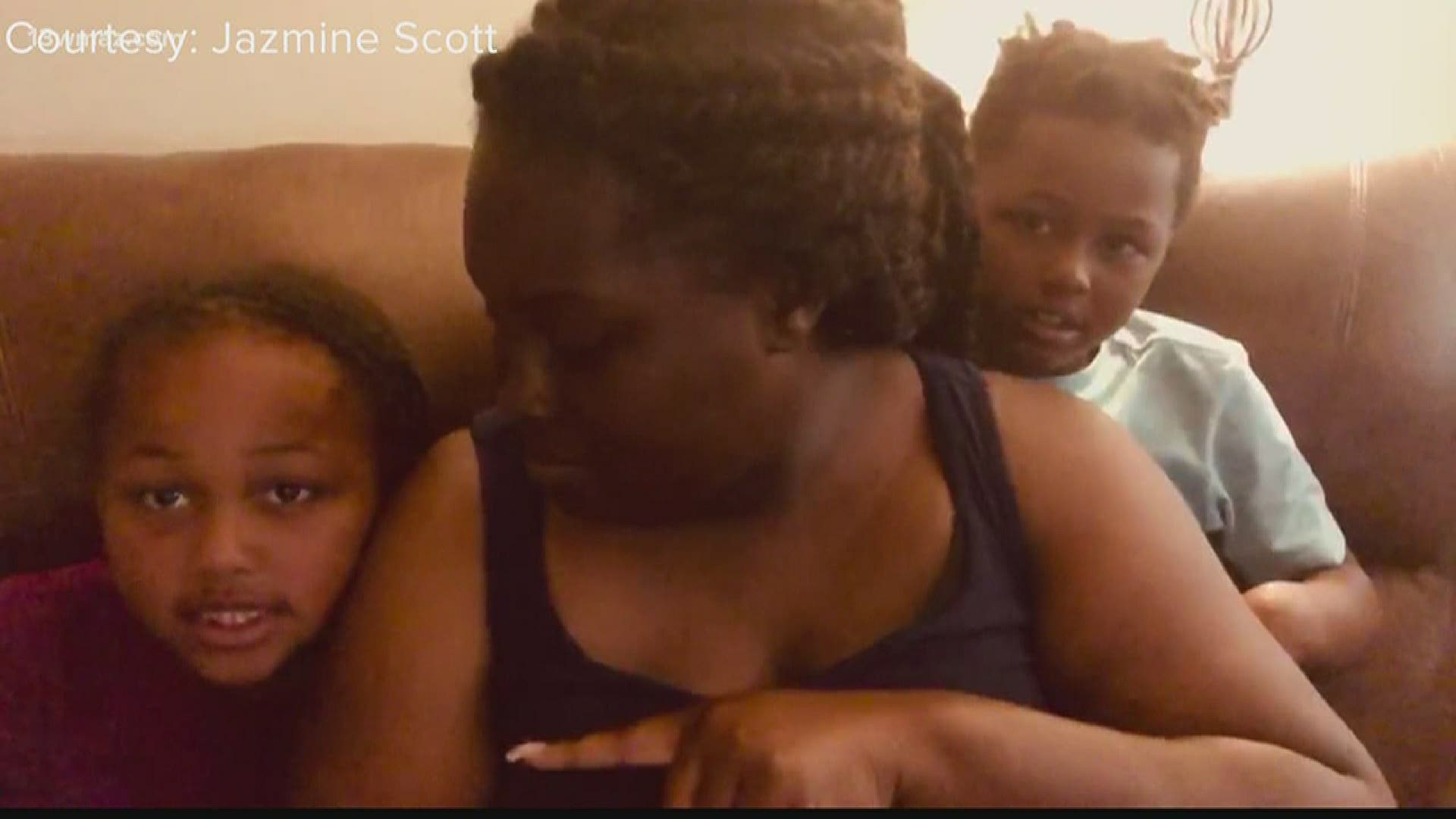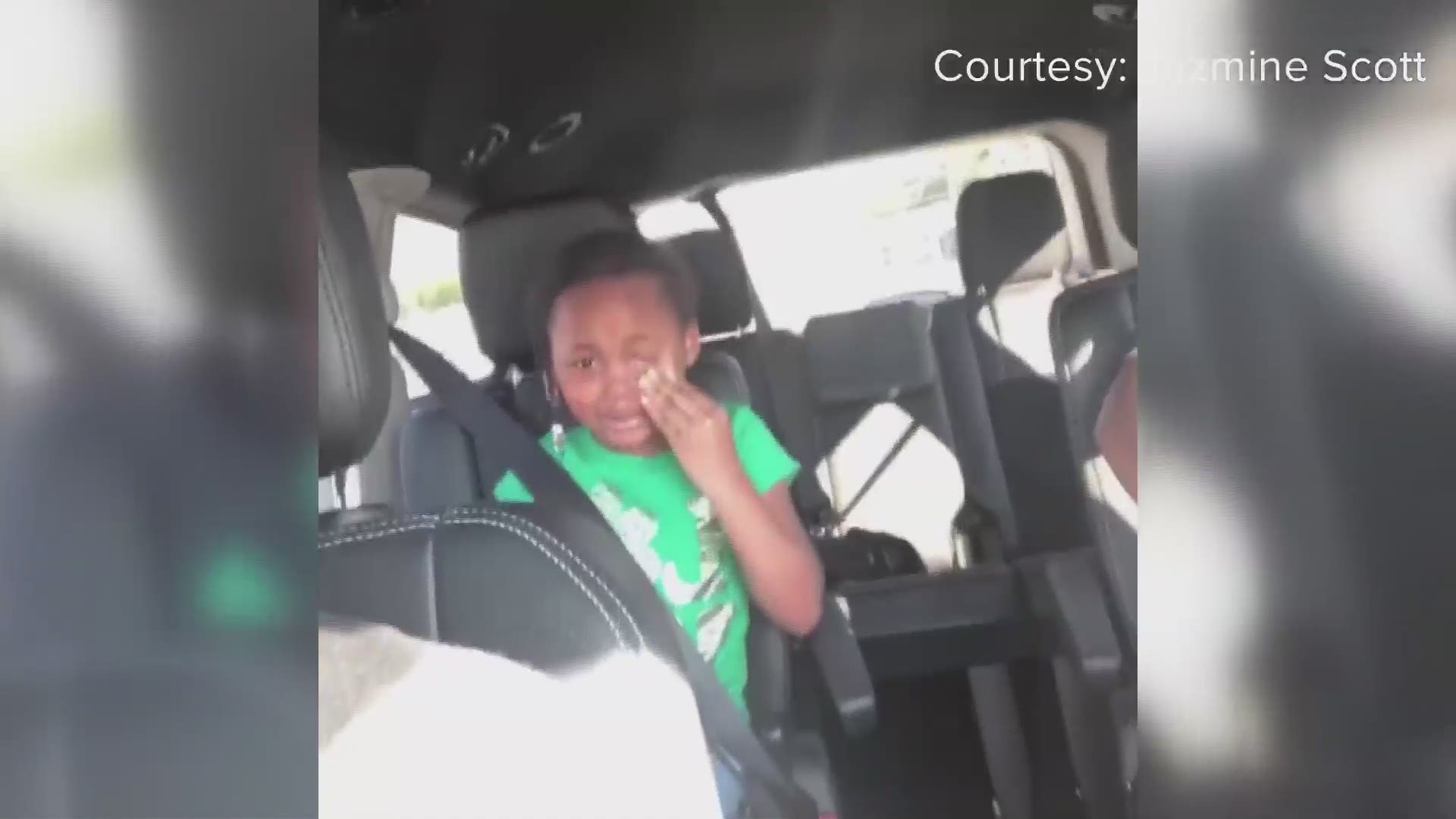WARNER ROBINS, Ga. — One minute.
That’s the length of the video Warner Robins mom Jazmine Gabrielle Scott posted to Facebook Monday afternoon.
In the video, you can see her 6-year-old daughter Jazlynn sobbing and hear her say, “I don’t want anything to happen to me.”
Her 7-year-old son, Julian, is also visibly shaken and says, “It doesn’t matter about the races. What matters is that you’re all people. It doesn’t matter if you’re different or not. What matters is that you’re people.”
The video concludes with a promise from Jazmine to her children that she will do everything she can to prevent them from dying for no reason.
She says in her Facebook post that she debated posting the video, but she felt saddened as a parent that her children feel the way they do.
It can be a scary time for children who are seeing violence and protests around them, leading some parents to try and find ways to have those conversations with their own kids.
"You can never really fully explain something without showing it, so I let them see just a little clip of the George Floyd video, just so they could kind of see and my daughter was like 'no, why is he doing that,'" said Scott.
But Scott says her kids are vocal, and she knew they would have something to say about what they saw.
"It was a very emotional experience for them and myself, and I felt like it needed to be seen. People need to understand the gravity and the effects that injustices have on our kids," she said.
13WMAZ spoke to Jasmine Ferrill, a licensed marriage and family therapist, about when to have those conversations and what they should include.
Ferrill breaks the talks down into two separate age groups, ages 2-11 and ages 12-18, though she says it’s important to engage with them regardless of their maturity level.
In the younger group, she says the focus of the conversation should be about fairness and how they feel.
She says parents should ask their child questions about how they feel, why they feel that way, and how certain situations make them feel.
She likens it to asking kids how their body feels instead of having them label their emotions since they may not have the language to do so. For example, a kid may say he/she has a stomachache, when in reality, they are feeling scared or nervous.
As for the older age group, Ferrill says you should be more direct.
Ask your teenager what they’ve seen or know from school, their friends, and social media.
Then, she says you should show or explain to them why it’s happening. Provide context and education on the history behind it, like showing documentaries or giving them books to read.
WHAT OTHER PEOPLE ARE READING


